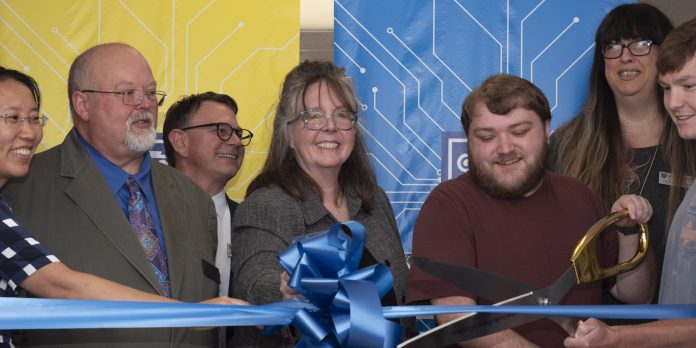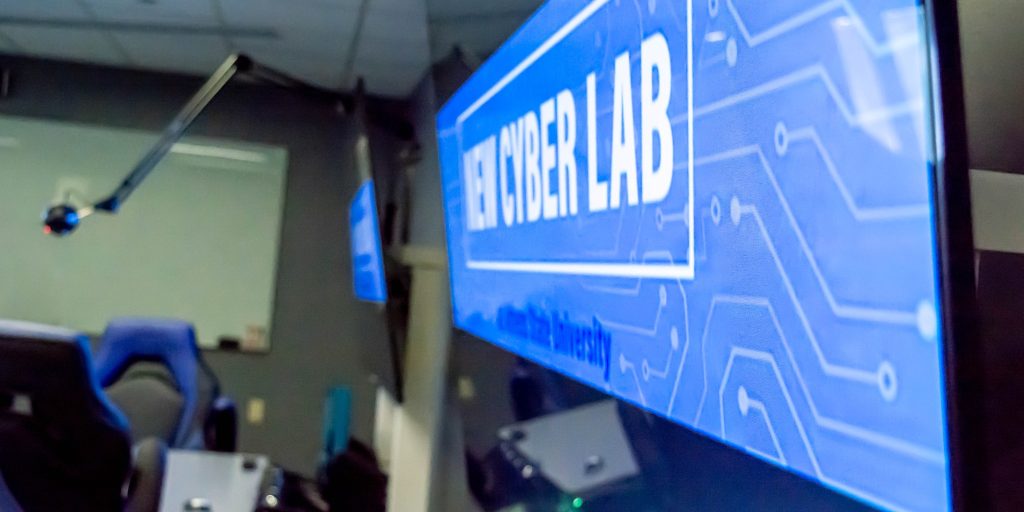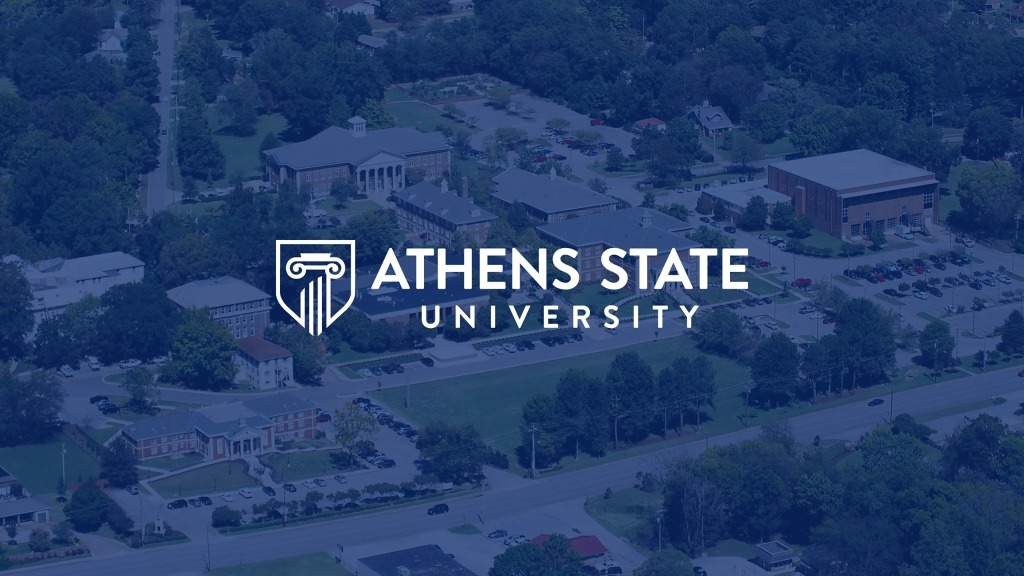ATHENS — Athens State University is expanding its capabilities in producing highly qualified cybersecurity experts for the local and regional workforce and has opened a new laboratory to generate the expertise necessary for cybersecurity threats to local government agencies and corporations.
Related story: Athens State CyberLab provides tools, technology for next generation of cyber experts
Dr. Adam Lewis is the associate professor of computer science and program coordinator for computer science and informationtechnology at Athens State. He led the development of the university’s CyberLab. The laboratory uses the latest technology to help produce graduates ready for security challenges today and into the future.
The following is a question and answer with Lewis on the CyberLab:
What was the motivation in building this CyberLab on the Athens State University campus?
Effective instruction in cybersecurity requires specialized resources. There is a need for a secure and isolated environment where students can practice and experiment without concerns that their exercises will affect live production environments. The CyberLab gives us an isolated sandbox where we can allow student to play with technologies that can be quite disruptive in the wider world. And it benefits the faculty as well as provides a set of tools and infrastructure that can be used for research purposes.
What is the difference between existing computer labs and this cyber lab
I like to describe the difference as the CyberLab being a place where I can turn the students loose without worrying about them blowing up stuff, well … the computing equivalent of students causing an explosion in a chemistry lab. The lab environment is physically separated from the university’s network environment with its own connection to the internet and separate servers than our main network.
How will this upgrade help Athens State students become more valuable in the workplace?
The Cybersecurity Lab provides the infrastructure we need to ensure our students have access to the tools they will need to use when they enter the cybersecurity workplace.
What are some of the features of this lab that make it state of the art?
The physical aspects of the CyberLab were designed to reflect the current state of the art in instructional design and teaching techniques as inspired by how the university remodeled the classroom infrastructure throughout our campus. But the “secret sauce” is the underlying infrastructure that supports the instruction in the lab. Our lab network is built using state-of-the-art networking hardware including firewalls and other security appliances in common use in our industry. We have a “virtual device infrastructure” in place that permits students to work both locally in the lab and remotely if they are in an online class. This VDI is built is constructed from the same hardware and software used in datacenters used by companies such as Meta, Google, and Microsoft.
Were there experts in cybersecurity that help internal talent in the development of the lab?
The development of cybersecurity lab was a collaborative effort of the CS, ITE, and MCO faculty, our university’s IT staff, and our vendors and partners at Broadcom VMWare and C*Spire.
Is the lab open to students who are not computer science or cybersecurity majors?
The lab is open to all students at the university. It will be used not only by the computer science and cybersecurity majors but any student taking a cybersecurity-related course throughout the university. For example, the tools we use complement the forensics tools used in our criminal justice program.
Do you expect enrollment increases as a result of bringing this lab online?
The Athens State CyberLab will aid our efforts to increase enrollment by providing the tools and infrastructure we need to broaden the scope and quality of our offerings in the computer science, information technology, criminal justice, and management of cybersecurity operations programs.











